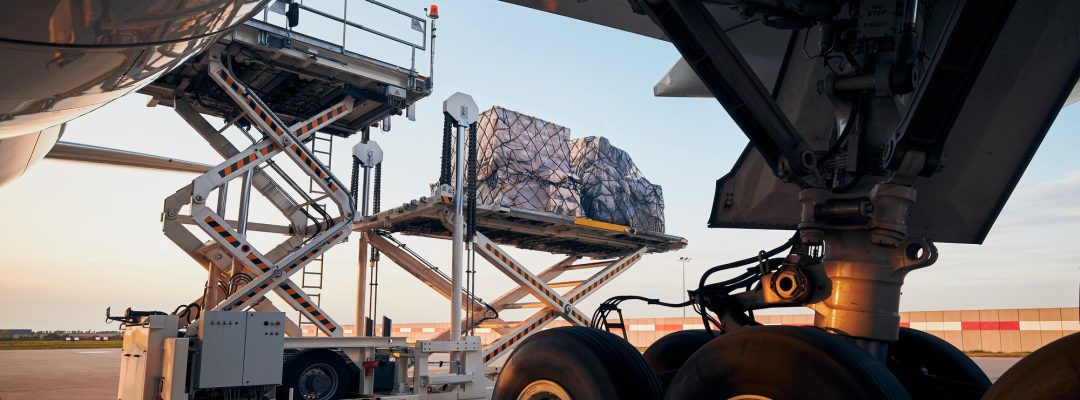10 Cargo Maintenance Mistakes That Are Costing You Money
Imagine,plane is grounded at Kotoka International Airport in Accra, Ghana, with a tight delivery schedule ahead. The maintenance engineer discovers a minor issue that, if addressed quickly, could prevent costly delays.
However, due to a lack of proper procedures and a rush, that minor issue becomes a significant problem, leading to substantial financial losses and a tarnished reputation for the airline.
This scenario is all too familiar in the aviation industry, especially for cargo maintenance engineers tasked with ensuring that aircraft are safe and operational.

As a cargo maintenance engineer, you play a crucial role in aviation.?managingcargo-handlinggotediousadequatemaintenance historymanagingtediousmaintenance historyadequateprotects you legally and Your expertise not only keeps aircraft in the air but also significantly impacts your organization’s bottom line.
However, even the most skilled professionals can fall into common traps that lead to costly mistakes. Whether you are fresh from flight school or a seasoned engineer in aviation consultancy, understanding these pitfalls is essential to enhancing your career and contributing effectively to your organization.
This is why this article is to help you avoid these mistakes in your career path
Come with us to explore these .
What does Cargo Maintenance mean?
But what exactly does cargo maintenance mean, It entails the inspection, repair, and upkeep of aircraft and cargo handling equipment to ensure that they operate safely and efficiently.
This process includes a range of activities, including regular inspections, servicing, repairs, and the management of cargo handling systems.
1. Neglecting Routine Inspections
Imagine a busy day at Airport, where flights are coming and going nonstop. As a maintenance engineer, your responsibility is to ensure that every aircraft is in top condition.
However, neglecting routine inspections can lead to serious consequences. For example, a small crack in a cargo door could go unnoticed during a routine check. If that plane takes off, the result could be a costly emergency landing or worse. Regular inspections can go a long way, in identifying issues before they escalate and ensuring that flights operate smoothly and safely.
2. Skipping Documentation
Documentation may seem like a tedious task, but think of it as the backbone of effective maintenance.
Think of a period where you’ve completed extensive repairs on a cargo aircraft but fail to record them. If an issue arises later, you might struggle to trace back the history of maintenance. In Ghana, where regulatory compliance is increasingly scrutinized, keeping detailed logs is essential.
Proper documentation not only protects you legally but also helps in tracking patterns that can prevent future issues.
3. Overlooking Training Opportunities
In this industry, knowledge is power.
The reality is that technology and best practices are constantly evolving and overlooking training opportunities can lead to outdated skills that hinder your effectiveness.
Engaging in workshops and training programs helps you stay updated and enhances your ability to tackle complex challenges.
4. Delaying Repairs
When you notice a minor issue, it’s easy to think, “I can fix that later.” But delaying repairs can turn into a costly oversight.
If that problem is ignored, it could escalate into a major failure mid-flight, jeopardizing safety and leading to expensive repairs.
By addressing repairs promptly, you not only ensure the safety of the aircraft but also save your organization money in the long run.
5. Ignoring Manufacturer Guidelines
Every aircraft comes with a manual filled with vital maintenance information. Ignoring these guidelines can be a recipe for disaster.
Trying to skip recommended maintenance schedules because “it seems fine.” This can lead to severe consequences, including equipment failures and safety hazards.
Adhering to manufacturer guidelines is crucial for maintaining aircraft integrity and longevity. By following these protocols, you ensure that you’re not only compliant but also protecting your investment.
6. Poor Communication
In any aviation operation, effective communication is vital. Imagine a situation where maintenance engineers are not informed about a change in cargo handling procedures.
This lack of communication can lead to mistakes that cost time and money. In Ghana, where collaboration is key to efficient cargo operations, fostering open lines of communication among teams ensures everyone is on the same page.
Regular meetings and updates help prevent misunderstandings and enhance overall efficiency.
7. Failing to Embrace Technology
The aviation industry is rapidly adopting new technologies, and failing to keep up can hinder your effectiveness.
This outdated approach can lead to errors and inefficiencies. In Ghana, where the aviation market is expanding, utilizing maintenance management software and other technological tools can streamline operations.
Embracing technology enhances efficiency and positions you as a forward-thinking professional.
8. Underestimating the Importance of Cleanliness
A clean working environment is essential for effective cargo maintenance.
Neglect can lead to equipment malfunctions and a negative impression on clients.
In the growing aviation sector in Africa, maintaining a clean workspace reflects professionalism and attention to detail. Regular cleaning and organization not only enhance safety but also create a positive atmosphere for everyone involved in the operation.
9. Focusing Solely on Cost-Cutting
While managing costs is important, focusing solely on cutting expenses can backfire.
Using cheaper and low-quality parts can lead to frequent repairs, ultimately costing more in the long run.
Striking a balance between cost management and quality is crucial. Investing in reliable parts and maintenance can save you money over time and ensure smooth operations.
Next steps,
By avoiding these 10 mistakes, cargo maintenance engineers can significantly enhance their operational efficiency and contribute to a more reliable aviation industry.
Want to learn more?


